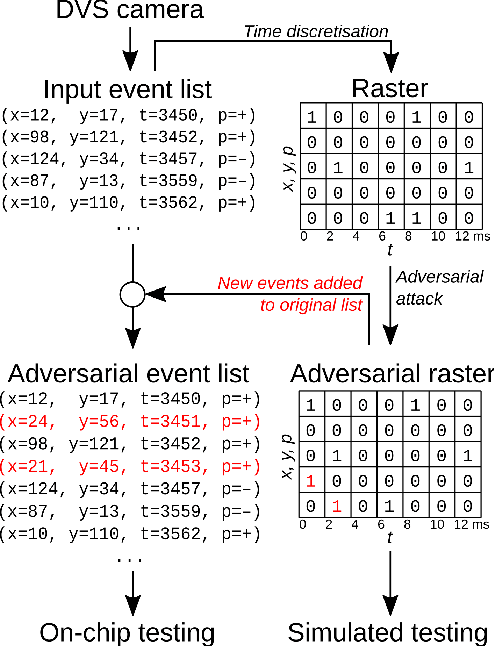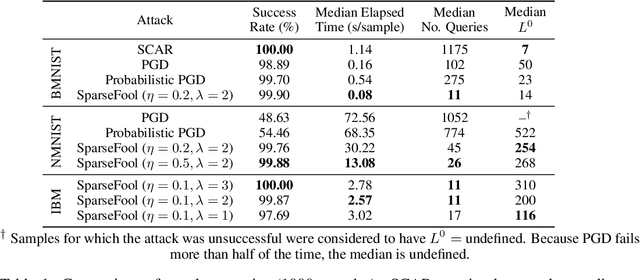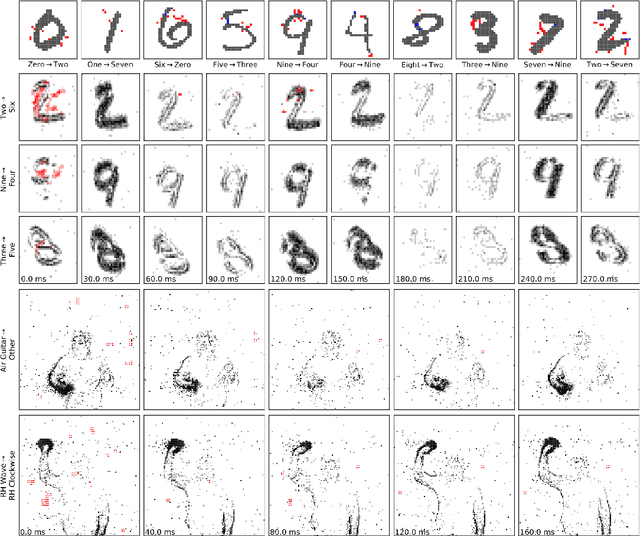Adversarial Attacks on Spiking Convolutional Networks for Event-based Vision
Paper and Code
Oct 06, 2021



Event-based sensing using dynamic vision sensors is gaining traction in low-power vision applications. Spiking neural networks work well with the sparse nature of event-based data and suit deployment on low-power neuromorphic hardware. Being a nascent field, the sensitivity of spiking neural networks to potentially malicious adversarial attacks has received very little attention so far. In this work, we show how white-box adversarial attack algorithms can be adapted to the discrete and sparse nature of event-based visual data, and to the continuous-time setting of spiking neural networks. We test our methods on the N-MNIST and IBM Gestures neuromorphic vision datasets and show adversarial perturbations achieve a high success rate, by injecting a relatively small number of appropriately placed events. We also verify, for the first time, the effectiveness of these perturbations directly on neuromorphic hardware. Finally, we discuss the properties of the resulting perturbations and possible future directions.
 Add to Chrome
Add to Chrome Add to Firefox
Add to Firefox Add to Edge
Add to Edge